Although most overseas expeditions are currently off the cards due to the COVID pandemic, there is definitely some UK based mountain event work available at the moment. I hope this article will be as relevant to that type of work as it is to bigger expeditions abroad. It is also never too early to start thinking about future expedition work and making sure you’re fully prepared for the role you want to take on.
Why is a medic an important member of an expedition team?
As an expedition doctor who loves the role I’m obviously biased but a suitably experienced medic can play a vital role in any expedition team, helping to ensure the success of the trip. Preventing medical problems is key to this success, but of course when issues do occur, treating problems quickly and effectively is also essential.
In recent years we have seen a significant increase in older people with associated co-morbidities (medical problems), participating in challenging expeditions. It is fantastic that more people are enjoying adventures for longer than in previous decades, but it has the potential to present more risk not only to the individual, but also to an expedition team. Therefore, understanding the medical background of a team member (past medical history, current conditions, medications etc.) is vital to understanding the risks, pre-empting what could go wrong and making plans to reduce the risks involved for everyone. This is where the expedition medic comes into their own and the work starts far before the expedition has even begun.
Having a dedicated expedition medic in the team also alleviates the burden on the expedition leader and other staff having to deal with the day-to-day minor medical concerns of the team. More importantly, in the uncommon case of a serious illness or injury, an experienced medic may be the only person with the skills to manage the situation and prevent the casualty deteriorating further before definitive care is reached.
I love talking about anything to do with mountain medicine to anyone who wants to listen so it’s great to have a captive audience of expedition members who are often keen to learn and discuss topics related to the environment of their trip (e.g. altitude illness, hypothermia, heat illness). I think the expedition medic has a unique opportunity and some responsibility to educate the team about issues that can affect people in the mountains and how to look after yourself and each other.
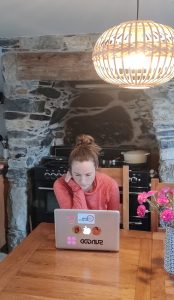
The Job
It can be just as nerve wracking as it is exciting when you’re planning an expedition job. There is a great deal to think about so I hope the following information will be a good resource to highlight what I think are the key points. The approach I take is to break the role up into three areas: pre-expedition, on expedition and post-expedition.
1) Pre-Expedition
- Research – this can be very time consuming but adequate research is essential in order to prepare well. Find out about the area you are travelling to, exactly what type of activities you’ll be undertaking, research local medical issues (e.g. altitude illness, malaria, snake bites), find out what local health facilities are available (secondary, tertiary care and psychiatric care), check what risk assessments and evacuation plans are already in place, if any (these may be pre-written if you’re working for a commercial company – check they are suitable and up to date).
- Skills – make sure your personal skills and experience are adequate, not only wilderness medical skills but expedition skills too. See previous blog on ‘what expedition leaders want from an expedition medic’ for more tips on this.
- Personal preparation – ensure your own health, fitness and kit is optimised.
- Call the expedition leader – have a chat before the trip to get to know each other, find out about each other’s experience and expectations for the expedition.
- Medical screening – this is essential to get right because without detailed information you cannot tailor your medical kit, plans, or any advice given to the individuals in your group.
- Don’t rely on a company, or anyone else to send out an adequate medical questionnaire – check to ensure it has enough detail, write your own, or use my proforma if you like it (see next blog post, coming soon). Send out a detailed questionnaire at least several months in advance, this should include questions on fitness, relevant experience (e.g. at altitude) and psychiatric history to name the commonly forgotten points.
- Contact each person to discuss significant medical history, give personalised advice and address their concerns.
- General advice/education – offer general advice to all expedition members several months before the trip. Tailor your advice to the specific expedition and group but make sure you cover at least the following points:
- Fitness, medical optimisation (including a dental check up), immunisations (see separate blog post for more information on this).
- Educate participants on health and hygiene risks and rules of the expedition.
- Advise people on what personal first aid kit they should bring.
- Recommend attendance on a suitable first aid course.
- Emergency plans – prepare an emergency response plan for a severely injured or unwell person and organise a communication network of support in the event of an emergency.
- Medical kit – obtain and organise the group medical kit. If someone else is providing it, ensure you have seen a list of contents well in advance. You may require additional or alternative items, depending on the location of your trip and the individuals in the group. Also allow time for a full physical check to ensure you have everything on the list and it is all in date and in good condition.
- Insurance – organise personal travel and medical insurance as well as professional medical indemnity.
- Documents – prepare a documents pack with emergency plans and contacts in addition to information on all group members, including their insurance details (you will be required to liaise with insurance companies in the event of evacuating a casualty).
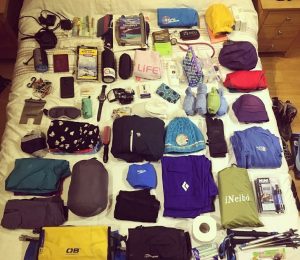
2) On Expedition
- Check in with all members on arrival – have a brief chat to introduce yourself and ask if any of their medical information has changed since they filled out the questionnaire.
- Group briefing – this is very important and will need prior planning and discussion with the expedition leader as they will also be delivering a separate generic expedition Tailor it to the expedition and group, and include topics such as sun protection, altitude, hydration, malaria, hygiene rules, environmental risk etc. Make it clear that as the medic you are there to support the group but that individuals will be expected to provide self-care for very minor issues, although you are always there for advice. Be friendly and approachable to help the team feel they can approach you with issues before they become big problems. Explain the concept of your clinic sessions (see below) and take any questions.
- Check kit – check all kit to ensure everything you’ve brought with you has arrived in one piece. Also check that anything you may have been issued by in-country agents e.g. oxygen tanks, are adequate and in working order. Also organise a place for the medical kit to be kept and make sure the relevant people know where this is.
- Meet the crew – in addition to your clients, you’ve probably just gained responsibility for the health of local crew. Introduce yourself, find out how many people are now in your care and ask if there are any health issues you should be aware of.
- Hygiene – ensure clean water supply and contribute to camp planning where applicable e.g. where toilets should be dug, where to get water etc. Check kitchen hygiene and raise any concerns.
- Clinic – organise a suitable time and place for a daily ‘clinic’ for consultations for non-urgent things. For example, every evening for 1 hour after dinner you could hold a drop-in-clinic in your tent or room.
- Reassess risk and evacuation plans continuously during the expedition; consider visiting local facilities if you have time.
- Regular ‘check ins’ with members – try to have at least a short chat with each team member every day. This is a great opportunity to pick up anything that had gone unnoticed but that might be troubling the individual. A great way to pick up on anyone who is struggling is to stay at the back of the group during any activity to help spot and support these people.
- Treatment – as you can see from the length of this post, hands on medicine is actually only a small part of your role! Obviously you are there to treat any medical issues but it is important to encourage participants to self-care as much as possible; otherwise you’ll find yourself being overwhelmed by lots of minor ailments that don’t really need a doctor to manage. Also encourage participants to tell you early if they have a problem they can’t manage. The earlier you know about a problem the easier it is to help.
- Document all significant medical events and keep the details somewhere safe and confidential (see previous blog post for more information on documentation).
- Teaching – you’ve got a trapped audience! Teach them about mountain medicine if they’re keen to learn.
- Enjoy and look after yourself! I’ve put this at the bottom but it’s one of the most important points. Remember why you’re there; get stuck in with expedition life and enjoy the incredible experience.
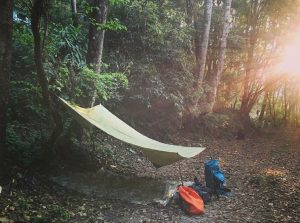
3) Post-Expedition
- Medical advice – at the end of the expedition give some general advice to the participants, as appropriate. I also like to follow this up with an email once we get home too because people are likely to forget the some of the details. Here are some examples of things to note:
- If anyone has ongoing symptoms once home e.g. loose stool or non-healing skin lesions, they should seek urgent medical assessment from their General Practitioner (GP) or local hospital and will likely need tests which may include (depending on the symptoms and trip location): full blood count + film, stool sample for microscopy, culture and sensitivities, and a urine dip.
- Advise to continue malaria prophylaxis once home e.g. Malarone needs to be taken for 1 week after leaving a malaria risk area.
- Advise participants to seek help if they develop a fever within a few weeks of returning home; malaria can present weeks after exposure and develop rapidly.
- Communicate with the GP – If a significant medical event occurred during the expedition, it is a good idea to contact the individual’s GP with their consent, so they are aware of the recent changes to the person’s medical background and medications. This is especially helpful if the person needs ongoing treatment or support once home.
- Documentation – don’t forget “good notes = good defence”. Keep a copy of your medical notes somewhere safe and give a copy to the company you have worked for, if agreed.
- Consider a debrief – whether things went well or you encountered issues, I consider debriefs to be extremely valuable for you and the team. It doesn’t need to be formal, just a quick chat in the airport bar with the team leader is great, but sometimes a more formal team debrief may be required. In addition, it is beneficial to provide feedback to the organisation or company you’ve been working for and receive feedback from them too.
- Kit check – check your personal and medical kit. Does anything need replacing? Did you have everything you needed? Did you have too much? Use this experience whilst it is fresh in your mind to plan how you might change your kit for the next trip.
- Reflection – as with all areas of medicine, take some time to reflect on what you did well and what you think you could do better next time. Think about the challenges you faced, what made them difficult, and how you coped. Did anything surprise you, if so why?
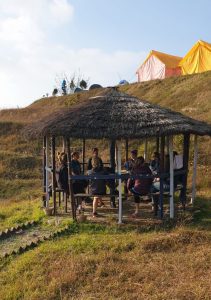
As always, I’d love to hear your thoughts so please comment below if you think I’ve missed anything or if you have any questions. Thank you!
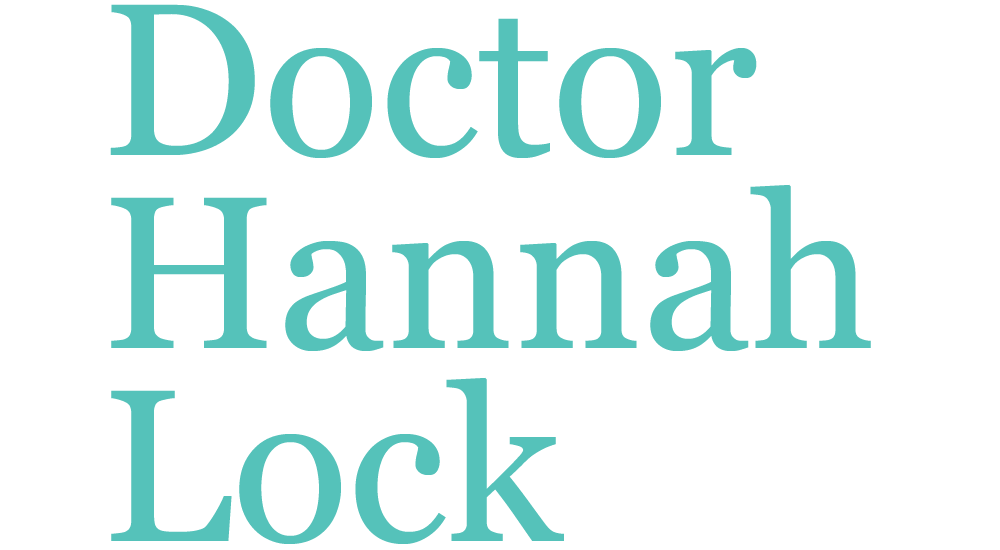
Fantastic blog post! Broken down really nicely – will be a very useful aid when planning my next exped
Thanks Sash! Glad you like it.
What would be the minimum size of team numbers that would require a dedicated medic? Also, I am considering a trip with 4 or 5 people to Greenland and I wondered if you could recommend a first aid course that would be suitable? I don’t think my first aid at work certificate will cover it 🙂 I’m also looking for information on cold weather injury. One of the team has previous frost bite and struggles in Scottish winter so I want to know how to manage that on and before the trip.
Really interesting post, thanks.
https://wildernessmedicaltraining.co.uk/ Are a good bet – Hannah might have other recommendations, good luck with the expedition.
Worth getting your friend to consult with a private doc with an interest in the area – likely someone who holds the DiMM/DipMtnMed qualification or similar.
Hi Davy, thanks for your message and thanks for your reply Tom, really useful!
In terms of group size that would require a dedicated team medic, I don’t think there is any right answer to that to be honest. I think it depends on multiple factors such as group size, location of the trip (in terms of how remote it is and therefore how far from rescue or medical help you would be), length of trip, environmental and activity risk level, whether anyone in the group has any significant medical problems. This is by no means an exhaustive list, but in general I’d consider that the higher the risk of issues occurring and further away from medical support you will be, the more value there is to having a skilled medic on the team. It also depends on the risk you and your team are happy to take, I think this is always worth a discussion.
In terms of training, I have also heard good things about wildernessmedicaltraining.co.uk as Tom suggested. It is certainly worth doing a first aid course specific to the outdoors/remote pre-hospital medicine. I’m not sure how many courses are running at the moment because of covid restrictions but it’s worth sending some emails.
Lastly, on the subject of frostbite – previous frostbite is a risk factor for further frostbite for sure! I’m happy to discuss this person’s case with you in more detail by email or phone (if you have consent from the person). If you think this would be useful, email me with some more details please and I’ll do my best to advise or pass you on to a colleague more experienced with frostbite. If the team member is happy for you to discuss it with me, please include dates of previous frostbite, where and how it happened (e.g. mountaineering at high altitude or some other activity at a low altitude?), location on body of the frostbite injury, severity, treatment they had and a bit more about what you mean that they struggle in Scottish winter. Thanks!
I really love this post Hannah, it is gloriously comprehensive – good job! I would add that some companies might expect you to produce a formal post trip report, though I haven’t yet had to do one myself. Looking forward to reading more 🙂
Thanks a lot, I’m glad you like the post! Yes excellent point about the report, thank you for adding it.